|
I remember several years ago having a discussion with my Israeli neighbor. She had just moved to the United States and told me she didn’t understand why we Americans are "so fake." She said she found it weird that when asked how we are doing, we automatically say, “I’m fine, how are you?” I’d never really thought about it, and I inquired how things were different in Israel. “Oh,” she said, “we’re honest with each other. If someone is having a terrible day, you hear all about it." Huh. It was the first time I realized that saying “I’m good” is a default response, like breathing, for myself and for so many of us. One of the silver linings I’m seeing all around me now is that people are being more vulnerable and candid with one another since the pandemic started. Some friends now answer “How are you?” with a straightforward, “not well” or “this is hard.” Others admit they’re not sure how they’re doing. Still others declare, “I’m good,” then pause, and confess “actually, that’s not true. I'm kind of freaking out.” One friend called me back several minutes after we hung up the phone to say, “You know how I told you I’m fine? I’m not.” It’s absurd to think the majority of us would be doing “just fine” during this most unstable, confusing), and emotionally charged time. A pandemic we can’t get a handle on? The country finally waking up in a widespread way to the racial and class inequities we managed to normalize for centuries? An election that, no matter what, will leave half the country scared?
I don’t even ask “How are you?” anymore. I’ve shifted my language to, “How are you doing in this moment?” That’s about all I myself can answer. Even in this very second, I can tell you that I’m scared and hopeful and optimistic and peaceful and anxious and sad and delighted. I don’t know how those feelings can all coexist, but they simply do. While all the structures and systems crumble beneath us, maybe we can learn to open up to each other a little more and show our humanity. If we’re doing well, we should certainly feel free to share. But maybe we can stop making it an autopilot experience. Perhaps we can put aside our egos and habits to show up with authenticity. Another gift we can give each other is how we respond when others share they’re not doing well. We can stop trying to fix it by giving advice ("Hey, you should try yoga!" or "Are you getting enough sleep?"), which basically no one wants to hear for the most part. What we all want is to be seen and heard. The best gift we can offer is helping someone hold their feelings so they can feel less alone. It's enough usually to offer a listening ear and, “That sounds hard" or "Do you want to tell me more about that?" All around us, the foundation is breaking, and many of us are imagining ways to rebuild that are more sustainable, equitable, and humane. We will need energy, inspiration and connection. It will help deeply to allow people to show up as they are, be real, and give one another a soft place to land.
1 Comment
Recently, an Executive Director of a newly formed nonprofit asked me how to go about getting publicity for his new youth-empowerment program. I asked him where he was in the process, and he told me he was piloting the program in a few weeks. He wanted to start getting press now though to raise funding. This made no sense to me (except for the fear of running out of money, a pressure every ED faces). “I think before worrying about publicity, it's better to focus on piloting the program and making the program as strong as possible,” I suggested. "Right," he said, "but what about getting publicity?" The next week, a filmmaker asked me how she could get her short video to go viral. I told her that no one can really predict what will go viral. What we can do is try to create something that is really good first. She smiled and wanted to talk more about going viral. I understand intimately the feeling of urgency to get the spotlight on my work. I’ve lived and breathed the anxiety that comes from craving validation that my work is as good as I hope; a need for funding so I will be able to continue the work I love; and the race to get my idea out there before someone beats me to it. It doesn’t help that we live in a culture obsessed with buzz. Success is linked with being featured on media outlets, discussed on Twitter (better if you get your own hashtag), and being offered a TED talk. All this anxiety creates a hunger for publicity before the project is even done (but it’s so close, right?!). If you feel this is happening to you, recognize it. Take some deep breaths, and let yourself know you’re where you are supposed to be. How will you know it’s truly time to go after publicity? Here are the questions I recommend asking yourself: 1. Are you done with the project? It sounds practically old-fashioned but it's our job to focus on the work, first and foremost. Spend the time you need on it until you can say that you’ve given it your all (perfectionists, I see you, and you have to let go at some point). Then, share it with a small group of people whose opinion you respect. I’m not talking about family and friends who will say it’s great because they love you. Find a small focus group of people, ideally in your industry, who can speak knowledgably. If you have a personal advisory board, this is a good time to rely on them. Stay as open as possible as you listen to their feedback, even if it’s hard to hear. Wait until you can be objective, and then incorporate the changes you know will make the project better. This make take one round, or a few rounds. It may slow things down but you get one chance to launch. Note: I've been told that it's important to generate a lot of buzz before my projects got released. This doesn't make sense to me unless you already have a large devoted audience following you already. If I am excited about someone’s project, I want to see or experience it right away. In this oh-so-noisy world, I don’t want to have to try to remember when it will be released. It’ll be gone from my brain by then. There should be some active step an audience can take.
2. Can you define your own version of success? Before releasing your project into the world, ask yourself what success will look like for YOU. Many of us dream of awards, front-page news, glowing testimonials and bestseller lists. There’s nothing wrong with aiming high but ask yourself if there are other alternatives of success. I love making projects that inspire people to pursue their own paths rather than getting trapped into what society deems acceptable. Yes, it was always my aim to reach many thousands of people with each project but I also felt it would be worthwhile if I were to change the lives of many dozens of people in a substantial way. What do you need to happen in order to qualify your project as worthwhile? Write that down before you launch so you don't lose sight of it. Have you celebrated completing your vision? As Kerry David, my co-director on our documentary SEEKING HAPPILY EVER AFTER told me, you get only one chance to create something exactly as you intended it and have it belong to you. Once you release it into the world, it is no longer truly yours. People will have their own edit suggestions, interpretations and opinions, and it is no longer yours in the same way. Presumably you didn’t begin making your project for someday publicity. Whether you get excellent feedback from the outside world or not…celebrate the fact that you finished a project that was meaningful to you. Take a victory lap for being willing to see your creation through and put your ideas out there. Soak in the joy, toast yourself, buy yourself a swank takeout dinner. If and when you can answer yes to all these questions, you’re likely ready to pursue publicity. Of course, you'll need a concrete publicity plan with a schedule, pre-written emails, and list of contacts with email addresses. It's not just a wing and a prayer. You'll need a good combination of high-octane coffee and daily yoga or meditation. This part of the journey can make even the most confident feel vulnerable and exposed. Hopefully, you’ll get shout-outs galore. But do trust word of mouth. When a project is good, others want to see it. Don't you? If your topic is compelling and resonates with people, it will find its way. In the meantime, keep celebrating the hard and beautiful work you did in creating something meaningful. If you like this you might enjoy:
Also, if you have an AVERSION to self-promotion, I highly recommend this read by Amanda Hirsch of Mighty Forces. When founders are asked whether they have an “advisory board,” they often cringe because it’s one more thing to set up and manage on an overflowing to-do list. When it was brought to my attention, I pictured weeks, maybe months, of tracking down the “right” roles: lawyer, marketing expert, finance person, etc. But what I found when starting my nonprofit was that there was a different kind of advisory board that I needed first, a dream team of people who could support me when I was feeling isolated and doubtful (which was often). For any of you in the start-up trenches, here are the roles I found the most necessary, and I'd be curious to hear yours. My advisory-role suggestions include the person who:
So how do you recruit your picks? Do you know who you'd pick for you dream team? Start taking down some notes. Play around with the role, and when you're ready...ask them. Be candid about what you’re looking for, why you chose them and what exactly it will mean for them in terms of responsibility. It might sound something like this: “Hey, Aunt Megan, I’m realizing that being a founder can be pretty lonely, and I could use someone to cheer me on when I meet big goals. I’m assembling my dream team time of advisors, and you’re the best cheerleader I know. Would you be willing to be this person for me? It would mean that when I have a victory, I can call or email you so we can celebrate together?" If she is confused, you can add, "It may sound weird to formalize this process, but I think having this advisory board in place will give me the confidence I need to keep going.” Hopefully Aunt Megan says yes. If she says no, she wasn’t the right person so go ahead and rethink this one. It doesn't mean she doesn't believe in you. It just means she isn't right for the role. Note: Some people may be worried about how much time they can commit, so be clear on the ask. They need to know you’re not going to be calling round the clock (also, don't call them round the clock). It's okay if it takes you time to get your advisory board in place. Don’t wait until you have all six to launch. You can move forward with two or three, and keep your eyes open for new team members to add on. If someone committed but isn't the right fit, ask someone else. You may find there are other roles you need, or that you only need a few. This is YOUR board so the most important thing is to make it work for you. Dole out gratitude regularly to your board. People agree to advise because they want to make a difference in someone's life. You don't have to send extravagant gifts. Let them know how they were helpful to you, and propelled you forward. Lastly, take mental notes on everything you learn about this process, and be an advisor for someone else someday. If you like this you might enjoy:
Are You Celebrating the Tiny Wins with Your Family & Staff Why Starting a Business is a Whole Lot Like Tubing My 16-year-old daughter recently hit a quarantine roadblock. "I was doing pretty well with a daily schedule and making healthy food choices and stuff," she told me. "But now I'm staying up too late, procrastinating on my work, and eating too much because I'm bored." I congratulated her on the win.
She looked at me like I was a little crazy. “Um,” I just told you that things are falling apart over here.” I nodded and let her know that my week was similar – I was skipping showers, also stress-eating (hello, York Peppermint Patties, my old friend) and not checking in with people as much I had planned on. But instead of punishing ourselves, we should appreciate that we recognize things are off track because it means we can adjust and try again with new intentions and a realistic game plan, or just give ourselves some quiet breathing room. I’ve been thinking a lot about my mom’s valuable lesson of learning to take stock of my wins on a daily basis. I’m not talking about clearing enormous hurdles, winning awards, and getting huge promotions. I’m talking about the little invisible wins that quietly propel us forward while building resilience. It’s about momentum… When I started the nonprofit MEDIAGIRLS, I was overwhelmed those first few months. My background was making media. What did I know about incorporating as a nonprofit, setting up payroll, establishing a board, etc.? Who did I think I was? Even thinking about all the things I didn’t know made me want to call my boss some days and quit. Except…I was my boss, and I’d started this whole thing. There was no way I could endure the wild ride of establishing a new business if I remained panicky in my uncertainty. So I followed my mom’s advice and jotted down a few bullet points each day in a journal listing my accomplishments. Again, we’re talking small wins: I called the bank to figure out how to set up an account; I researched the phrase “fiscal sponsor”; I cried only once that day from frustration. These bullet points created a sense of momentum. Maybe I wasn’t “crushing it” as a business owner but I was trying, learning, risking, and being brave. Every few weeks I looked back at my journal and noted how far I’d come. Writing down the tiny wins made my progress undeniable and gave me the courage to keep going. Parents of girls: We are a culture obsessed with comparing ourselves to others (Instagram, anyone?) and hyper-focusing on our flaws. This is perhaps most true of girls, whose confidence drops by 30% between the ages 8 and 14 (The Confidence Code, 2019). It is a vital act and service to teach our girls, and model for them, how to appreciate who we are and what we bring to the table. Taking stock of our tiny wins is the way to do this because it is internal, in our control, and requires no outside validation. Making “weekly wins” a policy As MEDIAGIRLS started to grow and I hired a small staff, I instituted a policy that every Friday we would celebrate our “weekly wins.” What did we get right? What did we learn? What moved us forward? The rule is that we can’t mention at this time what went wrong or how it could have been better. Being humble and learning from our mistakes is also essential but a separate discussion. Some days are much harder than others to find the wins but I promise there’s always at least one. Back to my daughter… We appreciated the small – yet pivotal – win of realizing she was struggling and needed to adjust some habits. We talked out a few realistic changes she could try this week, not more than two or three, with a plan to check back in a week later to see what went well. Then we’d celebrate those tiny wins and tweak some more. I’m hoping this way of approaching life will stay with her long after quarantine ends and become part of her daily practice. On my list of wins today: In addition to writing this blog, I showered before 9 AM. I remembered how to spell “accommodate” (okay, I had to look it up on Google but I’ve now memorized it, I think). I put my reading glasses where they actually belong so I wouldn’t spend an hour hunting for them later. It’s unlikely anyone will hear this news and fling confetti at me or raise their glass in a toast. But I’ll quietly cheer on my small victories and let them move me forward. Last month, I went tubing down the Deerfield River in Western Massachusetts with my family. It felt so good to be moving freely in nature without a mask on, and the experience was a little surreal after spending years using tubing as a metaphor for starting a business. It’s like this... You pick up your tube and step into the river clutching it awkwardly but ready for adventure. You stand there wondering when you should go…is it now? Should I go NOW? Do I just GO? There is no one to tell you when. This part is like announcing to the public you are opening for business. It’s so exciting but you keep thinking about reasons to postpone it (“I don’t have the right office supplies,” “the website could be more dynamic,” "I should announce it on a Monday," etc.). Eventually you realize there’s no right time; you have to just plant your butt down in that tube and pick up your feet. For a while it’s usually joyful and easy, especially when you have good weather, the sun is out, and the birds are chirping. And then, BAM!, you either get stuck on a rock or end up in the weeds wondering how the hell that happened. It had been so fun just minutes ago when you were in the flow. Now you’re stuck, frustrated and demoralized. You start worrying you're not going to make it out of that river in one piece.
This is the part in business when you launched but you’re not getting the publicity you anticipated; or you’re getting rejected for grants after all those excruciating hours of writing; or you’re realizing you don’t know the first thing about how to incorporate or form a board. Part of you will want to pick up your tube, and go home. You tried; it’s too hard. Listen up, that’s par for the course. But the key to running a business is staying calm, getting yourself unstuck and heading back to the center of the river. It’s okay to wait a few minutes, catch your breath, ask for help from a companion, and give yourself a pep talk. But you have to get back into the current and keep going. Take a moment to reflect on what you learned ("I should have lifted my rear end higher when I saw the big rock," "I should have faced forward when I heard the rapids coming"). Next time, you’ll have a model for how you got unstuck last time that you can draw upon. Knowing this will boost your confidence; the first time is the hardest. The true trick of tubing and business... The big win—on the river, in business, in life—is to keep applying what you've learned along the way while enjoying the peaceful or exhilarating parts. Don't waste your time worrying there are more hard parts down the bend. Spoiler alert: There are. Stay present and feel the cool water beneath you, the sun reflecting on the leaves, the fun of floating with people you love, and even silliness of getting whipped around a little. You will exit that river with a few scrapes, bruises and bug bites but that’s nothing compared to the wild joy of the overall ride. I’m certainly in good company when it comes to jobseekers: There are 7.2 million Americans who don't have a job and are looking for one. I am fortunate in that I did not get furloughed or laid off (it was a choice I made), and I know millions of others are suffering far more substantially, trying to figure out how to make rent and/or buy groceries. While we are not all in the same boat, we all do need support because we are not in the driver’s seat during a time packed with uncertainty. What's the best way to support us? Certainly it depends on our personalities and, even then, our needs might fluctuate. But I thought it might be helpful to create a list of some of the best and worst things I’m hearing from loved ones, all who have good intentions, to get the conversation started.
Note: I'd love to hear from others what you find helpful and not helpful so please feel free to leave your thoughts in the comments. 4 things NOT to say to someone looking for a job:
4 things to say to someone looking for a job:
For us jobhunters: It is up to us to stay in touch with our feelings and needs, and make sure we’re expressing them to our friends and loved ones. They are not mind readers. It doesn’t mean you’re committing to only one type of conversation; we can always tell our family/friends, “So today, I could use _______” or “I’d love to talk about anything except jobhunting right now,” or whatever else feels right. Like all the emotional biggies—pregnancy, illness, divorce, pandemics, etc.—we should not test people on whether they guess correctly how to show up for us. What matters is that when we relay our hopes and needs, they do their best to listen and meet us where we are. We are for the most part all doing our best! |
THE COVEMichelle Cove is a journalist, filmmaker, author, and founder of the nonprofit MEDIAGIRLS. She uses storytelling and media to encourage, challenge, empower and inspire others and is seeking a job that allows her to put these skills to use; check out her resume if you may know the right fit. Michelle's favorite stories involve resilience, a blend of soft humility and sharp humor, and a belief that the universe is conspiring to help us all grow. Find her at LinkedIn. Also find her on
Archives
February 2021
Categories
All
|


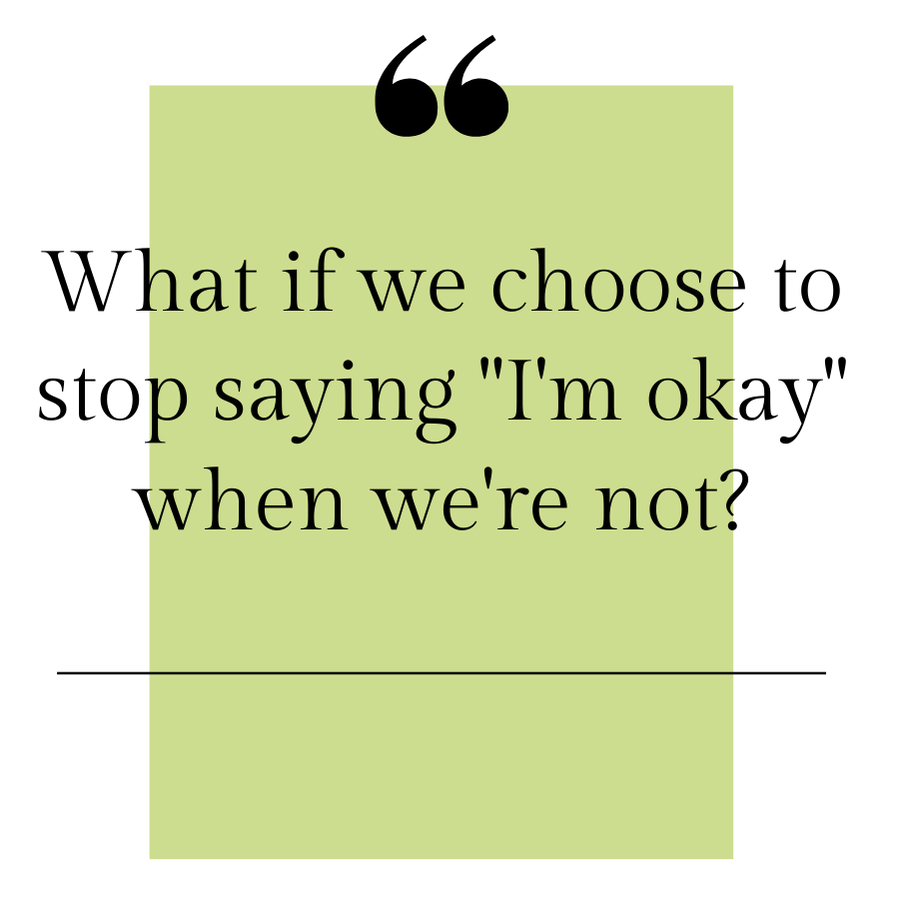
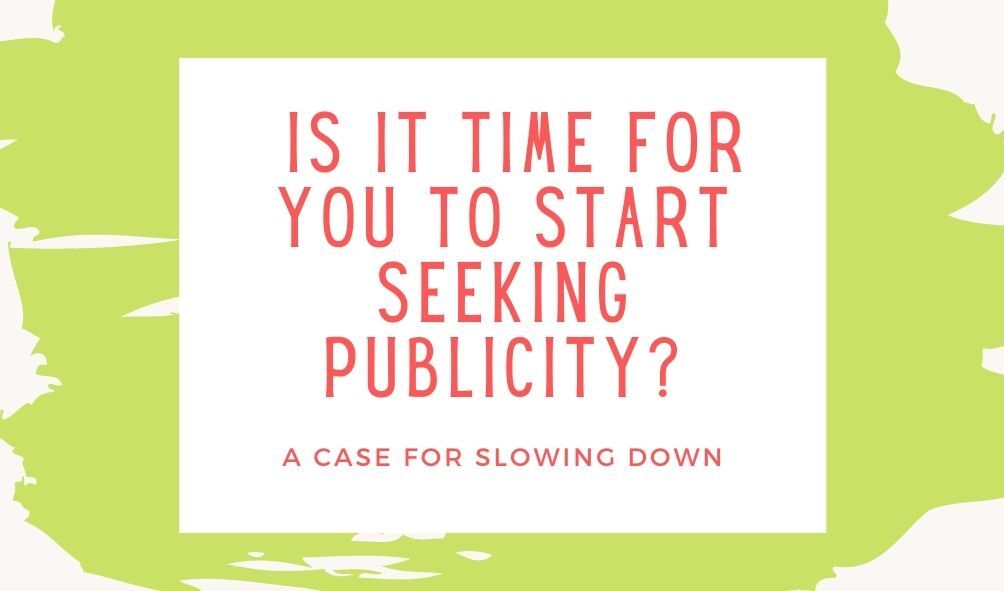

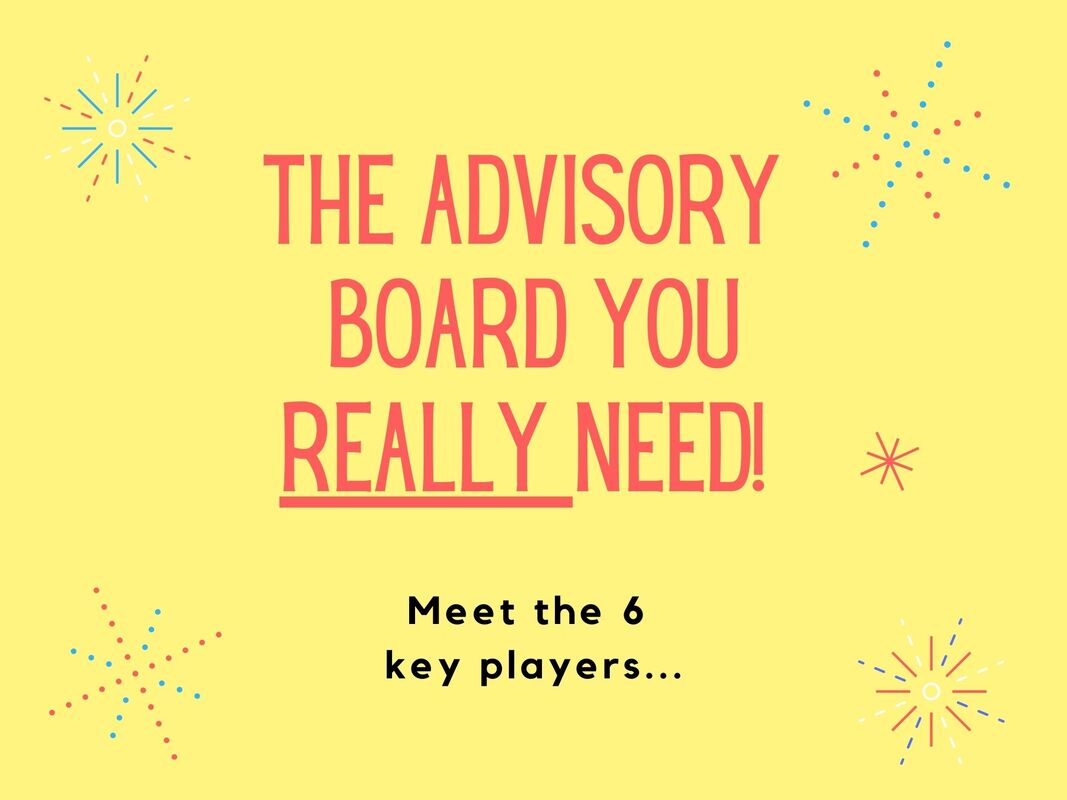


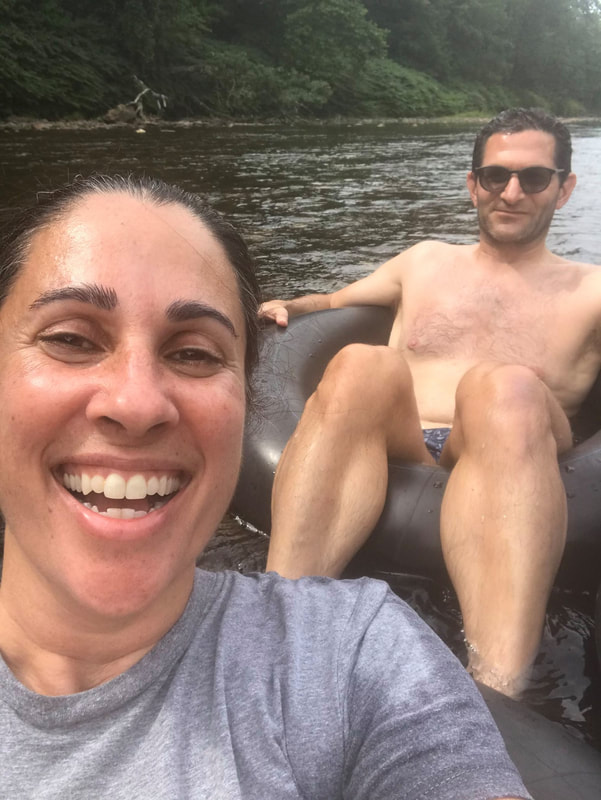

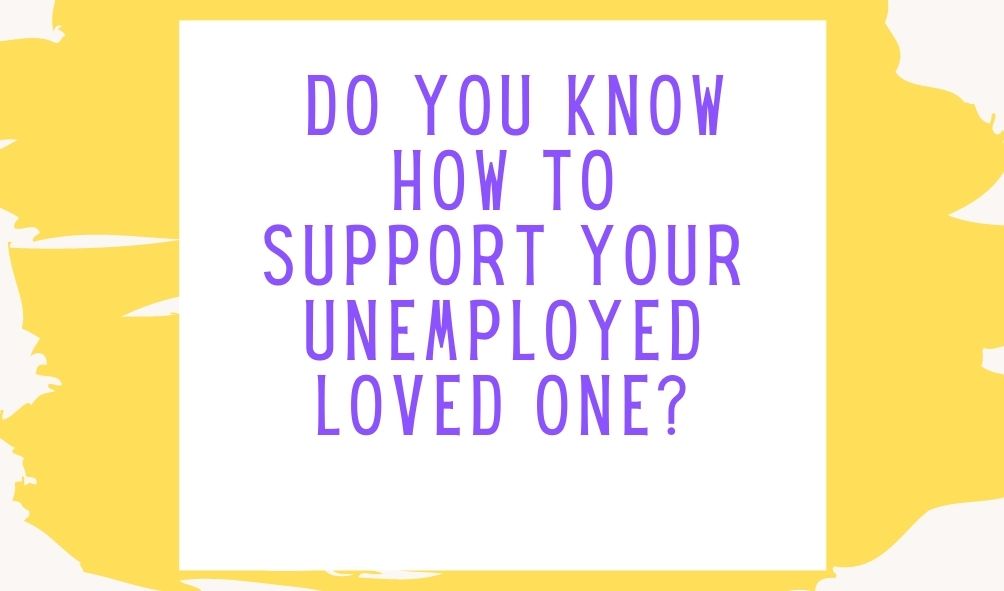
 RSS Feed
RSS Feed
